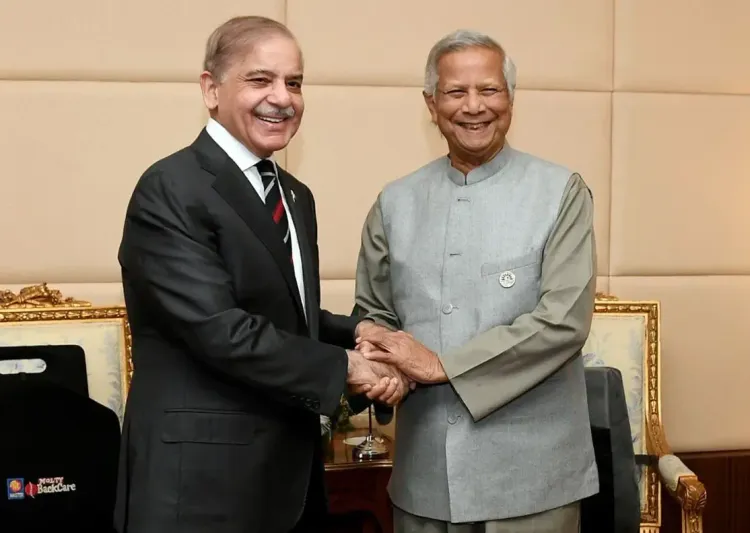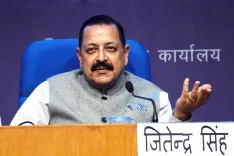Is Bangladesh Navigating Dangerous Waters in Its Relations with Pakistan?

Synopsis
Key Takeaways
- Bangladesh and Pakistan held a Joint Economic Commission meeting after 20 years.
- The relationship carries significant risks due to Pakistan's fragile economy.
- No concrete trade targets were established during the meeting.
- Unresolved historical issues between the two nations remain a challenge.
- The military's influence in Pakistan raises concerns for Bangladesh.
New Delhi, Oct 31 (NationPress) As Bangladesh and Pakistan convene their Joint Economic Commission (JEC) meeting after a two-decade hiatus aimed at improving diplomatic relations, Dhaka stands to gain very little from a nation governed by military leaders and grappling with a troubled economy hovering on the edge of collapse.
Conversely, the evolving relationship carries significant risks.
In a twist of fate, the JEC meeting occurred simultaneously with the visit of General Shamshad Mirza, the second-highest officer in Pakistan's military, following Field Marshal Asim Munir. These dual events reflect a renewed initiative from both sides to bolster bilateral connections, overshadowed by the military's influence over diplomatic affairs.
Nevertheless, the stark truth remains that Pakistan's precarious economy, burdened by a trade deficit nearing a staggering $3.34 billion as of September, has little to offer Bangladesh.
Bilateral trade between the nations is under $1 billion. In the fiscal year 2025, Bangladesh imported goods valued at $787 million from Pakistan, while exports merely reached $80 million, primarily consisting of jute and yarn.
The potential for increasing these figures appears minimal, as no definitive trade goals were established during the JEC meeting.
According to an IMF report, Pakistan needs a $7 billion loan to stave off a balance-of-payments crisis. From 2023 to 2026, Pakistan must manage roughly $75 billion in total debt obligations, averaging $25 billion annually, a sum it currently lacks the resources to service.
While Bangladesh views closer relations with Pakistan as a strategic move amid deteriorating ties with India, the reality suggests a return to the influence of the military leaders in Islamabad.
The Pakistani army has expanded its dominance over multiple sectors, including cement, fertilizer, banking, and agriculture, yet it has consistently failed to achieve sustainable growth.
This military mindset prioritizes control and security over productivity and efficiency, which is why Pakistan continually seeks bailouts from the International Monetary Fund.
Nevertheless, the diplomatic thaw has resurfaced unresolved historical grievances between Pakistan and Bangladesh. Pakistan's Deputy Prime Minister and Foreign Minister, Ishaq Dar, recently asserted that "all issues of 1971" have been addressed. Dhaka promptly countered this assertion.
Foreign Adviser Touhid Hossain stated, "We recognize that the issues from 1971 cannot be resolved overnight. However, we are committed to maintaining dialogue."
He emphasized that a formal apology, the repatriation of stranded Pakistanis, and the division of pre-1971 financial assets are still outstanding.
Although the JEC may align with the geopolitical ambitions of both Dhaka and Islamabad, it cannot erase the atrocities and genocide committed by the Pakistani generals, which ultimately led to the formation of Bangladesh, supported by India's military.









